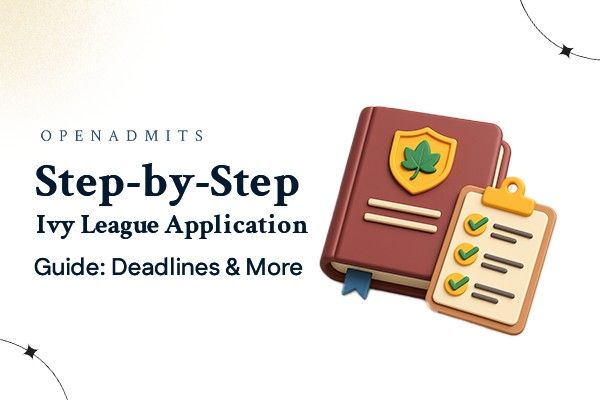


Step-by-Step Ivy League Application Guide needs to be sharper, smarter, and way more strategic.
Threatens to slash another $1 billion in Harvard funding? This political drama is shaking up the academic world, and if you’re aiming for the Ivies, it’s time to pay attention.
It just means the game is getting more competitive and political. So if you’re eyeing that Harvard, Yale, or Princeton badge, your Ivy League application needs to be sharper, smarter, and way more strategic.
Let’s break down exactly how to do that, step by step.
Sure, strong academics are a given at this level. Top Ivy League schools expect stellar grades, rigorous coursework, and if applicable impressive SAT or ACT scores. But when two applicants have near-identical numbers, that alone rarely tips the scale.
Forbes rightly points out that a fractional difference in scores or GPA is unlikely to decide the outcome. Context is crucial. Did the student challenge themselves with the hardest courses offered at their school?
Admissions officers don’t punish applicants for what they didn’t have access to. If a school doesn’t offer APs or IB, what matters is how a student used the academic tools they did have access to.
If a student goes out of their way to take community college classes or online advanced courses, that initiative often reflects a level of intellectual drive.
Timing is crucial when it comes to your Ivy League Application. Missing a deadline can be the difference between getting your foot in the door and being left out in the cold. Make sure to stay ahead of the game by keeping track of the major deadlines for each Ivy League school you’re applying to.
While specific dates can vary by school, here’s a general guide for most Ivy League institutions:
Make sure to double-check each university’s website for updates and specific submission details.
If you’re dead-set on one Ivy (like Columbia or Dartmouth), ED could boost your shot. But it’s binding. Be sure. Don’t play by yourself.
Instead of zeroing in on why Student A got into Harvard while Student B didn’t, looking at broader class-wide data. Patterns matter more than one-off success stories.
Compare your stats to the averages of an entire admitted class, not to random success stories.
Now, let’s talk about one of the most critical parts of your Ivy League Application—the essay. This is your chance to show the admissions committee who you really are, beyond grades and test scores. The essay should reflect your personality, your passions, and your unique perspective.
[Forbes] notes that admissions officers are looking for essays that are authentic and well-thought-out. This is not the time to try to write what you think they want to hear. Be honest, and focus on telling your personal story in a way that highlights your growth, challenges, and future potential.
Every year, high school forums are overwhelmed with questions like: “Should my child do Model UN or robotics to get into Ivy?”
Ivy admissions teams aren’t hunting for specific activities. What they’re seeking is commitment. A consistent pursuit over time. Leadership. Originality. Passion.
As Dartmouth alum Kennedy Hamblen puts it: Admissions officers would rather see deep involvement in a few meaningful activities than a long, scattershot list meant to impress.
Some Ivy League schools will require or offer interviews as part of their Ivy League Application process. This is your chance to make a personal connection with the admissions team, and it’s important to treat it seriously.
Not just about answering questions. It’s about showing who you are beyond your application. Be prepared to discuss your interests, your academic passions, and your future goals. The more genuine you are, the more likely you are to leave a lasting impression.
